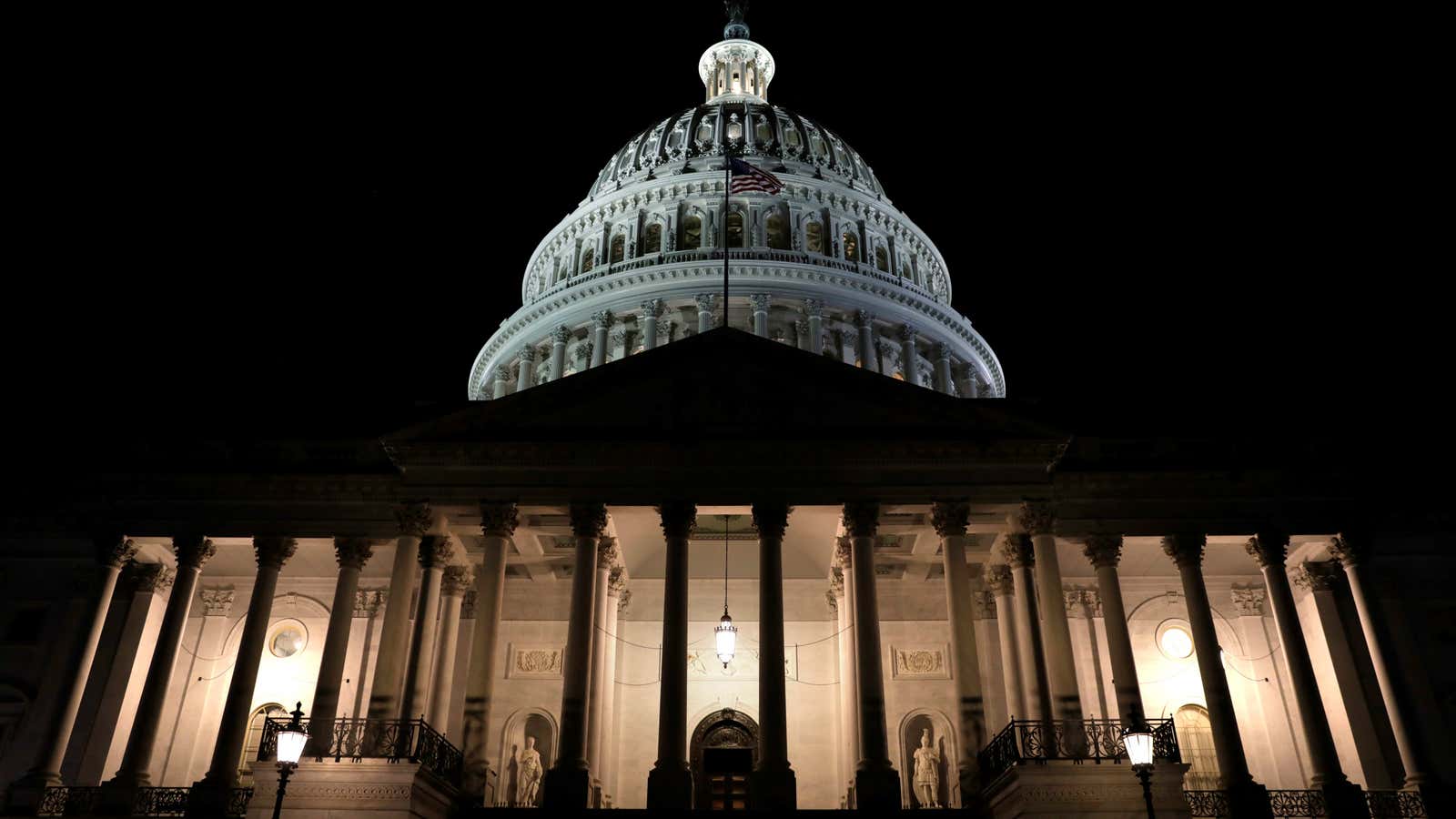It’s been one year since US president Donald Trump’s inauguration and the federal government has shutdown after failing to agree on funding—something that’s happened more than a dozen times during the past 40 years. Hundreds of thousands of government employees will stop being paid and many federal government functions will be suspended.
Although they’ve become more or less a feature of politics in Washington, shutdowns are costly, inconvenient, and hardly a sign of efficient governance. Here’s what happens when the US Congress fails to pass funding for its agencies and operations.
Military: Active-duty military personnel have always been required to work through shutdowns, and the same can be true for many civilians workers at the Department of Defense, according to PolitiFact. Critical military functions continue during these funding interruptions. However active-duty troops may not get paid until the budget impasse is resolved and death benefits to survivors won’t be processed.
National parks and federal offices: Public lands, monuments, and national park areas may be more accessible than they were during the last bout of budget deadlock, according to NPR, when parks and monuments closed. The Smithsonian Institution’s museums in Washington and the National Zoo are expected to remain open for the weekend but will close on Monday if the government remains shut. The same goes for passport offices within federal buildings.
Airline travel: Flights should be uninterrupted. Air traffic controllers at the Federal Aviation Administration will continue operating, and security personnel at the Transportation Security Administration will staff checkpoints, according to Bloomberg. However things won’t be so smooth behind the scenes—the FAA’s certification of new aircraft may be slowed if the shutdown continues, and furloughed aviation safety inspectors will have to be brought back to work as needed to make sure airline operations remain safe.
Money: If past shutdowns are a guide, economic data provided by federal agencies like Labor Department and the Commerce Department could be delayed. Functions that aren’t related to economic data at the Federal Reserve, which also has policy making, money processing, and regulatory responsibilities, shouldn’t be interrupted. A big chunk of the Internal Revenue Services’s workforce is likely to stop working, and much of the government’s oversight of financial markets may be halted.
How much will it cost?: The closedown will erase about 0.2 percentage points, or some $6.5 billion, off of quarterly economic growth each week that the impasse drags on, according to estimates by economists at S&P Global.
What else stays open: Mail will still be delivered, and Social Security checks and Medicare and Medicaid reimbursements will still go out. And if you were worried that elected officials may not be able to pay for their bus tickets to get to work, don’t be: Members of Congress should also still get paid.
